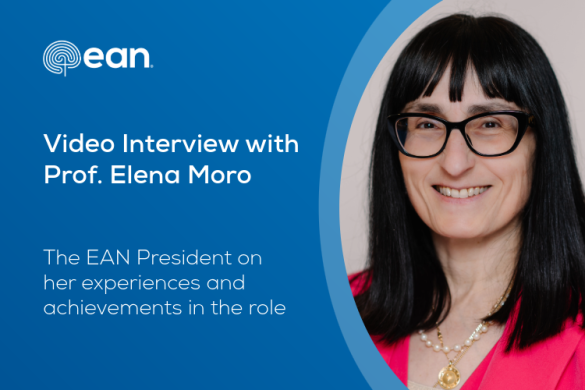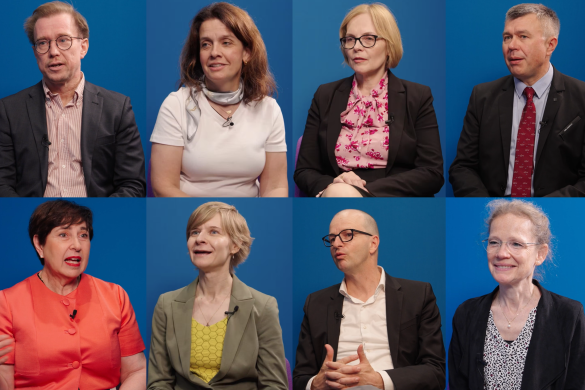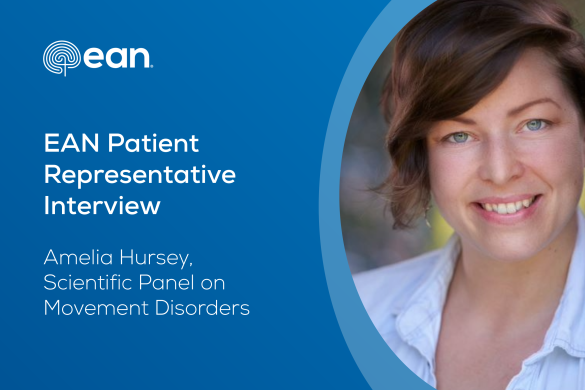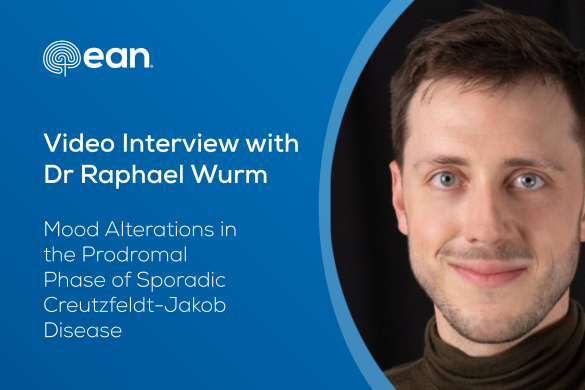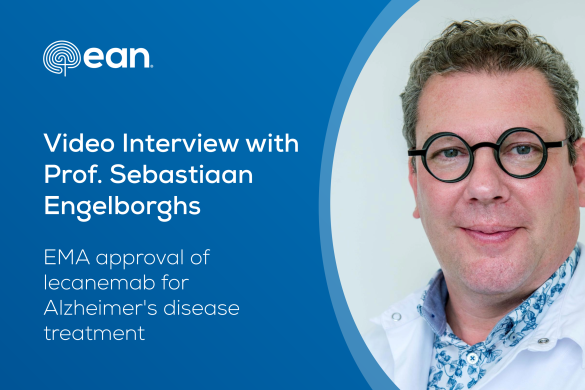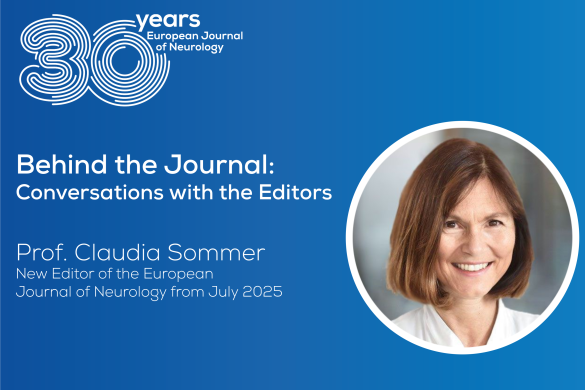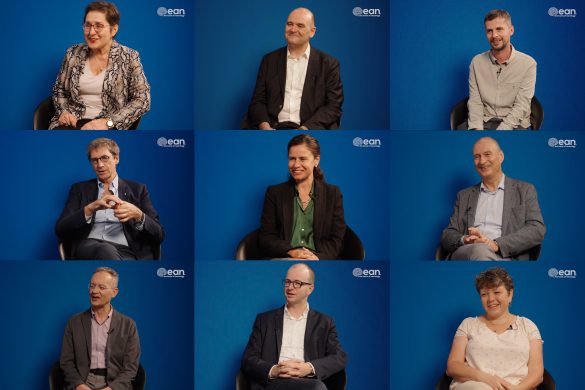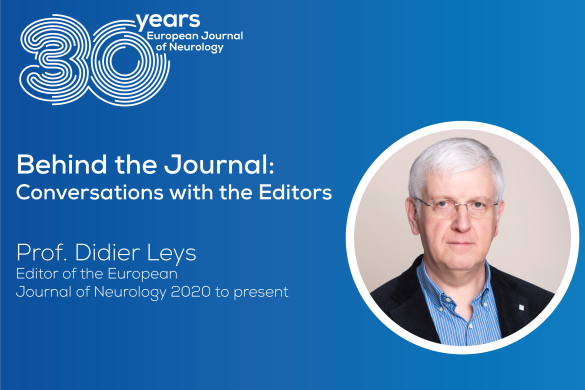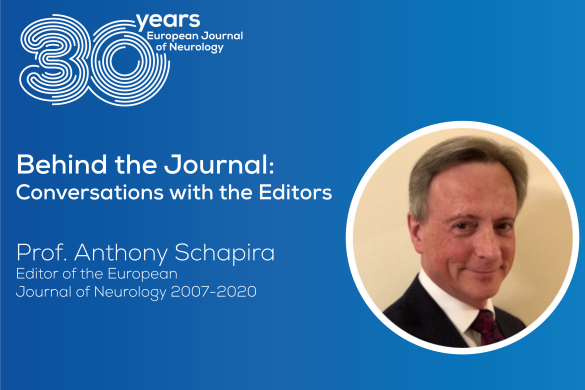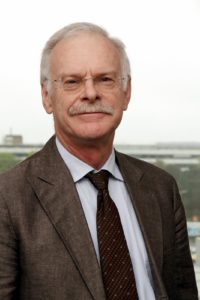
DV (David B. Vodušek): Can you please illustrate the European Chapter of IFCN to the readers of the EAN pages? What is the formal relationship of the European chapter to IFCN?
WP (Walter Paulus): The European Chapter (EC-IFCN) is one of four chapters of the International Federation of Clinical Neurophysiology (IFCN), with the others being North America, South America and Oceania. The EC-IFCN encompasses, at present, 35 European, Middle Eastern and African member societies, and represents round 8,000 clinical neurophysiologists, (out of a total world community of 21,000 or so). The European Chapter has a five-member Executive Council or ExCo; chair, secretary/treasurer, two members-at-large who are all elected by national societies and a liaison member of the Executive Committee of the IFCN, who is, at present, Professor Paulo Rossini. General Assemblies, of ExCo and delegates of our national societies take place in conjunction with the biannual European Congresses in Clinical Neurophysiology, with the next being Budapest in 2017, or with the quadrennial International Congresses, with the next taking place in Washington 2018. National conferences in CN are organized annually, amongst them this year Morocco and Egypt with more than 200 participants each.
The world organisation (IFCN) is funded by dues payable by each national society from each chapter according to their size, together with income from conferences and our journal Clinical Neurophysiology. From this the EC-IFCN receives a sum each year for its own work on the European Conferences, bursaries for trainees and for smaller teaching workshops.
DV: Can you please tell the readers of EAN pages about the way clinical neurophysiology is organized in the different European countries?
WP: Clinical Neurophysiology, (CN) is one of the independent medical specialties recognized by the Union of European Medical Specialties, (UEMS) in Brussels. In a minority of European Countries, (some Scandinavian Countries, the UK, Spain and others), it is practiced as an independent specialty. In these countries most consultants then are validated in several areas of the specialty. However, in the majority of countries CN is performed by neurologists who then mostly specialize in an area such as EEG or peripheral nerve and muscle investigations, though some cover all areas.
Training requirements vary. The secretary of the EC-IFCN Prof. Jonathan Cole organized a detailed review of training requirements in individual countries which is published on our homepage. The survey was in 2012, but a recent follow up has not shown significant changes since then. He is also coordinating the development of a European wide curriculum trying to harmonize variations and define a European wide standard.
DV: The EAN aims at establishing cooperation with neurology related scientific associations Europe wide. As Neurophysiology is closely linked to neurology, how do you see the potential for a more direct cooperation between EAN and the IFCN-European Chapter?
WP: The IFCN has recently defined CN as “medical specialty concerned with function and dysfunction of the nervous system, caused by disorders of the brain, spinal cord, peripheral nerve and muscle, using physiological and imaging techniques to measure nervous system activity. When interpreted in relation to the clinical presentation of patients, these techniques can either diagnose or assist in the diagnosis of neurological or psychiatric conditions or provide therapeutic tools for of neurological and psychiatric disorders. “Thus interactions exist with many other areas such as neurosurgery, orthopedics, psychiatry and pediatrics. However, our closest relation is with neurology, both clinically and scientifically, and there is also much overlap in education and training. Neurology training is generally required during training in CN, and most trainee neurologists require some exposure to clinical neurophysiology as well. Clinical interactions also occur on a daily level in relation to conditions such as epilepsy and peripheral nerve and muscle disease.
Scientifically ExCo EC-IFCN has just forwarded a statement to the EU to address some key research interests in which CN makes a contribution, such as substituting animal research (and in particular use of primates) by the use of invasive brain recordings from patients with epilepsy, transcranial brain stimulation, monitoring and in research on consciousness and others. The chapter has also discussed occasionally combining or associating our biannual meeting with the annual EAN meetings and this was agreed at our most recent membership assembly.
So there are a number of areas in which cooperation between EAN and EC-IFCN might develop, from closer collaborations in training and practice to specific areas of research based on CN techniques. One of the glories of neurology is that it largely remains an area of medicine where clinical skill and experience remain paramount. One role for us it to add supportive data to those skills to enhance diagnosis and response to treatment.
DV: As you are certainly aware, EAN produces European guidelines published in its official journal “European Journal of Neurology”. Do you see potential cooperation towards jointly written guidelines?
WP: Just recently Prof. Lefaucheur coordinated EC-IFCN guidelines on the therapeutic use of rTMS; those on tDCS are just under review in the journal Clinical Neurophysiology. More are at present being written in the context of the 6th International Conference on Clinical Neurophysiology in Göttingen in September this year substantially supported by the IFCN, in the same journal. We certainly are interested in cooperating in future guidelines which address areas of interest for both societies, in particular with our substantial, complementary expertise in a number of areas such as polyneuropathy or other neuromuscular diseases.
DV: EAN plans to become more active in optimizing clinical care for Europeans living with neurological disorders, which would also involve clinical Does the IFCS-European Chapter already work on a similar task?
WP: CN has primarily been a diagnostic specialty rather than one concerned with the continuing care of those with neurological specialties, though the intimate relation between EEG and therapy for epilepsy (and in intensive care), and the less common use of sequential nerve conduction and evoked potentials to assess disease progression or improvement has always blurred the line between treatment and test. This strict division is changing elsewhere too. Some years ago intraoperative monitoring became mandatory, with clinical neurophysiologists and non-medically qualified technicians (whose terminology changes throughout Europe) being involved. With the use of, for instance, transcranial DC stimulation and transcranial magnetic stimulation for the treatment of some conditions such as depression, and implanted neuro-stimulation techniques for pain, performed with neurosurgical colleagues, our members are becoming drawn towards therapeutic uses of our techniques. Deep brain stimulation is now a therapeutic cornerstone in movement disorders and may develop a similar importance in epilepsy and psychiatric disorders. If this trend continues then the EC-IFCN would be delighted.
Our work on European wide standardization of CN education and training, with an explicit ‘levelling up,’ is part of our work to optimize clinical care in Europe. In neurology much progress in treatment is mediated by multicentre multinational drug studies, an area which involves CN to a lesser extent. We also intend to promote Europe wide clinical databases providing clinical data on rarer neurophysiological diseases for treatment studies. We also promote CN topics for better recognition in the context of the Horizon 2020 program.
Lastly, of course, we are very open to suggestions or assistance coming from the EAN for areas where we can work together. We view our specialty as providing important complementary skills to those of clinical neurology, as well as to our colleagues in orthopaedics and paediatrics for example, and are keen to work together to pursue our common goal of optimizing clinical care in Europe.
Prof. Paulus I thank you for this very informative interview and wish you and EC-IFCN further success.
David B. Vodušek, Chair, EAN Liaison Committee
More on Prof. Paulus can be found here.





